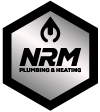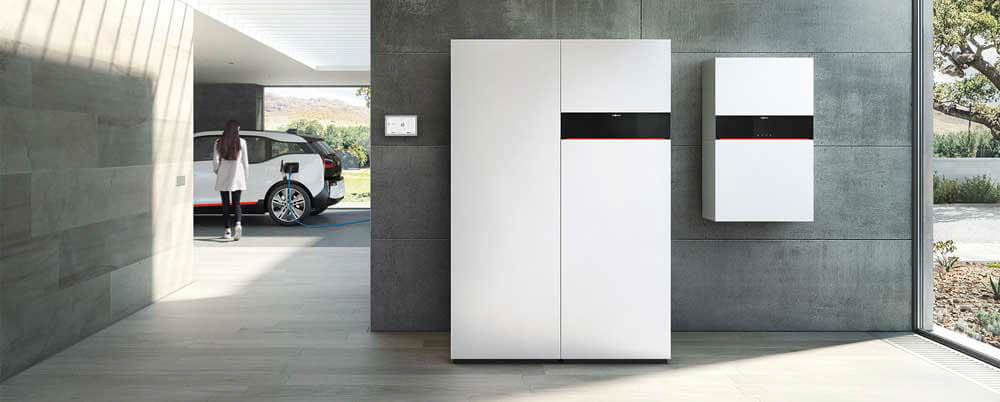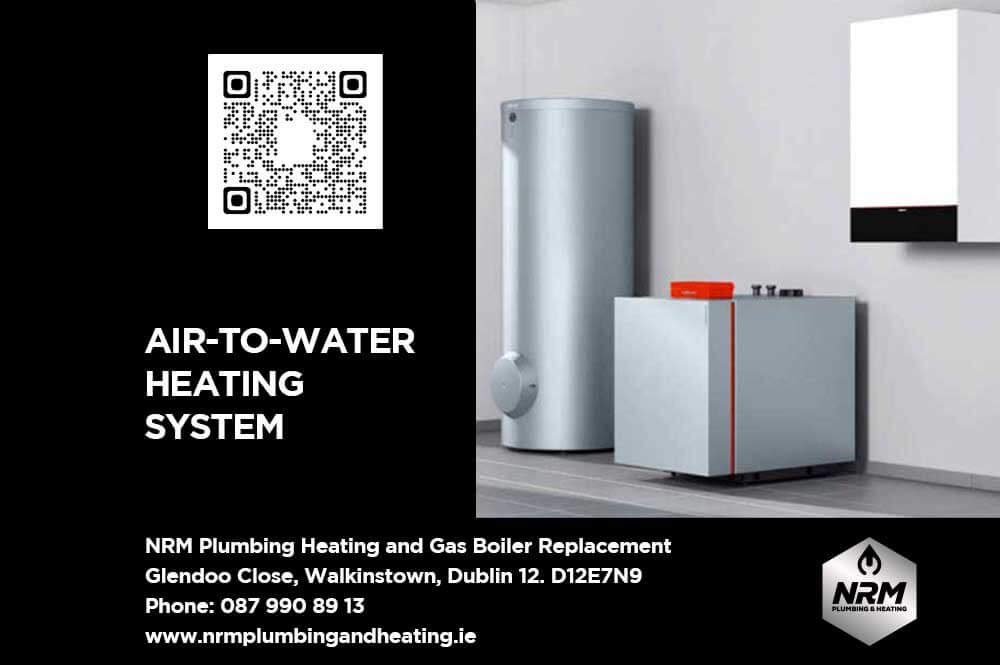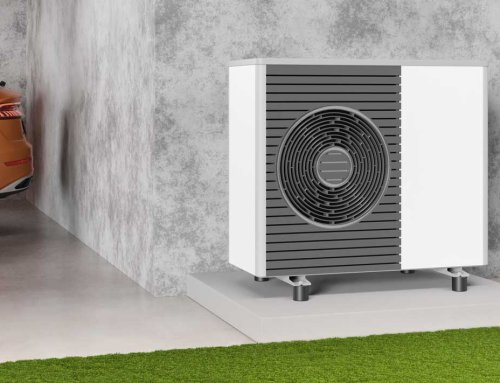Air-to-water heating system – With every passing year, climate change concerns are intensifying globally alongside growing demands to curb reliance on fossil fuels heating Irish homes built decades ago lacking modern insulation. As sustainable technologies improve and carbon taxes make oil boilers cost-prohibitive, forward-thinking homeowners seek eco-friendly systems aligning environmental values with long-term savings. (More info on: Oil Boiler Replacement Dublin)
Enter air-to-water heat pumps – an ingenious refinement of refrigeration principles providing central heating and hot water by extracting renewable warmth from outdoor air. Compared to directly burning oil, gas or biomass to create heat, (More info on: Boiler Replacement Dublin) air source pumps offer radical efficiency concentrating existing thermal energy using integrated components. Once prohibitively expensive, plug-and-play European systems have dramatically improved performance, economy and convenience as adoption spreads. (More info on: How Do Heat Pumps Work ?)
This guide will cover the basics of how these deceptively simple systems operate, installation costs with available subsidies, key benefits for residential settings and tips for finding the best heat pump installers in Dublin, ensuring success when transitioning your household to greener alternatives. Let’s dive into the modern mechanics and potential behind air-to-water heating and cooling powered sustainably through Irish skies. (More info on: Heat Pump Installers You Can Trust)
Air-to-water heating system – How Do Air-to-Water Heat Pumps Work?
While resembling traditional air conditioning units mounted outside houses, air source heat pumps perform the opposite task – (More info on: What are the Disadvantages of Air to Water Heat Pumps?) gathering free ambient warmth rather than dispelling it. Inside these white cubicles lies some clever refrigeration plumbing that can absorb 6-8 degrees Celsius from passing air and concentrate it to useful temperatures above 45°C for heating water circulated to radiators indoors.
The key components involved include an exterior fan and evaporator pulling warmth into circulating refrigerant fluid which then passes into a compressor. Here, the vaporised gas gets squeezed rapidly into a hot, pressurized state carrying concentrated heat energy.
This heated refrigerant then enters coiled pipes along a heat exchanger sharing thermal output with water. As the refrigerant condenses and cools again, the warmed water flows into insulated tanks ready for distribution across underfloor residential piping or radiators. Supplementary electric elements or gas boilers may integrate alongside for peak demands exceeding captured ambient heat. (More info on: Attic Water Tank Replacement)
Additional accessories like smart internet-connected thermostats give homeowners convenience and savings by tailoring heating schedules room by room to lifestyle needs while reducing waste. Zone control valves can channel warmer water to frequented living areas during evenings while allowing temperatures to drift lower in unused bedrooms.
While originating technologies date back over a half-century, rapid efficiencies and climate innovations position today’s modern versions of air source heat pumps as serious alternatives supplanting outdated oil and gas systems. Paired with proper insulation and usage planning, Irish homes can achieve radical emissions and energy reductions by harnessing free renewable heat surrounding us all.
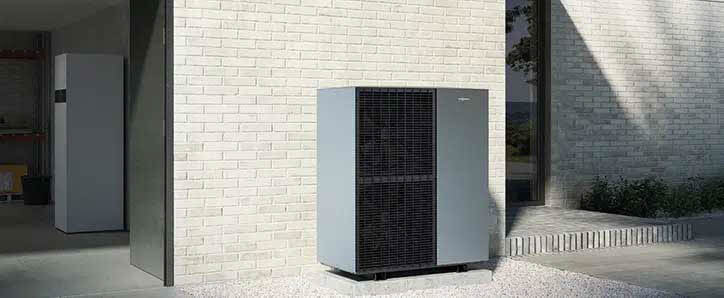
NRM Plumbing Heating and Gas Boiler Replacement, 26 Glendoo Close, Walkinstown, Dublin 12. D12E7N9. Phone: +353 1 535 29 48. Mobile: +353 87 990 89 13
Air-to-water heating system – What is the Installation Cost for Residential Heat Pumps in Ireland?
With ballooning expenses from outdated oil and gas boilers, savvy Irish homeowners often balk at hearing heat pump system quotes ranging €10,000 to €18,000 for equipment, labour and modifications to existing hydronic distribution. (More info on: Changing Your Gas Boiler in 2024)
“Are you serious” most react on first blush before reflecting on how two decades of graduated carbon taxes and soaring wholesale energy will erode fossil fuel savings. Factoring available public upgrade incentives, plummeting electricity and radically reduced servicing, air source heat pumps can offer 10-year total ownership costs comparable to new condenser gas boilers. (More info on: How Much Does a New Air Source Heat Pump Cost in Ireland)
Between slashed heating bills and managed equipment amortization, households switching from boilers to properly-sized heat pump alternatives reasonably save €5,000 or more over a decade. And that’s before counting grants from the Sustainable Energy Authority of Ireland (SEAI) worth €3,500 per average household lowering outlays further.
Savvy homeowners view SEAI subsidies, discounted electricity rates and future fossil fuel levy avoidance as risk-free financing softening transitional installation costs. With proper load calculations by certified technicians, new-build and extensively modernised homes achieve paybacks on heat pumps in as little as four years.
Air-to-water heating system – Key Benefits of Heat Pumps for Homeowners
Beyond insulating against future oil and gas price hikes, heat pumps provide less visible perks over conventional heating systems, such as the following: (More info on: Heat Pumps 101 – Your Guide To An Efficient Alternative To Conventional Heating Systems)
Improved Home Valuation – With building emissions accounting for nearly 40% of Ireland’s total carbon output, sustainability upgrades like heat pumps will attract increasingly eco-conscious buyers should you sell, recoverable after just two to three years of occupying.
Enhanced Comfort Control – Internet-connected thermostats permit custom room schedules and smartphone temperature adjustments impossible with outdated programmable timers, saving further waste.
Minimal Annual Maintenance – Unlike ageing boilers requiring annual inspections, combustion analyses and intermittent parts replacements, air source heat pumps mainly depend on cleaning air filters and exterior fan blade debris after storms for continued operation. (More info on: Oil Boiler Maintenance)
Lower Lifecycle Costs – Replacing boilers after 15 years still costs thousands over decades if not prematurely failing. Properly installed heat pump systems last 20-25 years with far fewer major repairs given less mechanical stresses and fewer consumable parts like igniters. (More info on: Gas Boiler Replacement Cost)
The eco-friendly and economical merits of modern air/water heating make installations a sensible path for families seeking stability against volatile fossil fuel pricing while aligning lifestyles with national sustainability goals through the 2020s and beyond.
Air-to-water heating system – Why Heat Pumps Are Rising in Popularity
As public awareness grows around climate change, heat pumps make sense for forward-thinking families wanting to reduce home heating emissions and energy expenses. Compared to the 80s & 90s, reasonably priced systems today work in colder conditions with smarter controls saving owners substantially over alternatives after incentives considering the additional value and benefits a heat pump can add to your home..
The technology’s improved reliability and economies have reached an adoption tipping point in Ireland thanks to three key drivers:
1. Generous SEAI upgrade grants easing transitional costs the average household can potentially recoup in under 5 years through energy savings – a compelling risk-free proposition.
2. Ever-increasing oil and gas expenses improve almost any green alternative’s payback where once only niche conditions favoured a move to a more greener energy solution.
3. Ireland’s legal mandate becoming carbon-neutral by 2050 necessitating home heating and cooling shifts from 43% of total national emissions coming from the built environment.
With the writing on the wall for outdated fossil fuel systems offering no environmental benefit, heat pumps make imminent sense among consumers recognizing lower net expenditures and ethical alignment merit minor habit changes.
Air-to-water heating system – How to Find the Best Heat Pump Installers
The best heat pump installers in Dublin will properly size systems to match your home’s unique heating demands based on insulation, layout, use patterns and your region’s weather. Expert heat pump technicians will assess real-world conditions to determine the ideal British Thermal Unit (BTU) capacity, thus avoiding oversized units which will waste money or undersized ones which will be unable to maintain temperatures.
Ensure your installers have the relevant certification and adequate qualifications to carry out the work according to modern safety practices as equipment and codes continually advance. Check online reviews to ensure that responsive management promptly addresses any issues experienced by previous clients. Ensure all work is guaranteed against defects. Most critically, confirm that the reputable company you hire will stand behind and promptly support any claims should any issues arise in the future.
Related search terms: air to water heat pumps Ireland, install air to water heat pump, air to water heat pump cost Ireland, air to water heat pump systems, air to water heat pump prices, best air to water heat pumps, Viessmann air to water heat pump, how much does an air to water heat pump cost to run, air to water heat pump grants Ireland, air source heat pumps ireland, heat pump air to water, heating ireland air to water heat pump, hot water heat pumps air to water, air to water pump
Ever wondered about an Ideal Combi Boiler for your home? ….Check out our latest blog post for details
